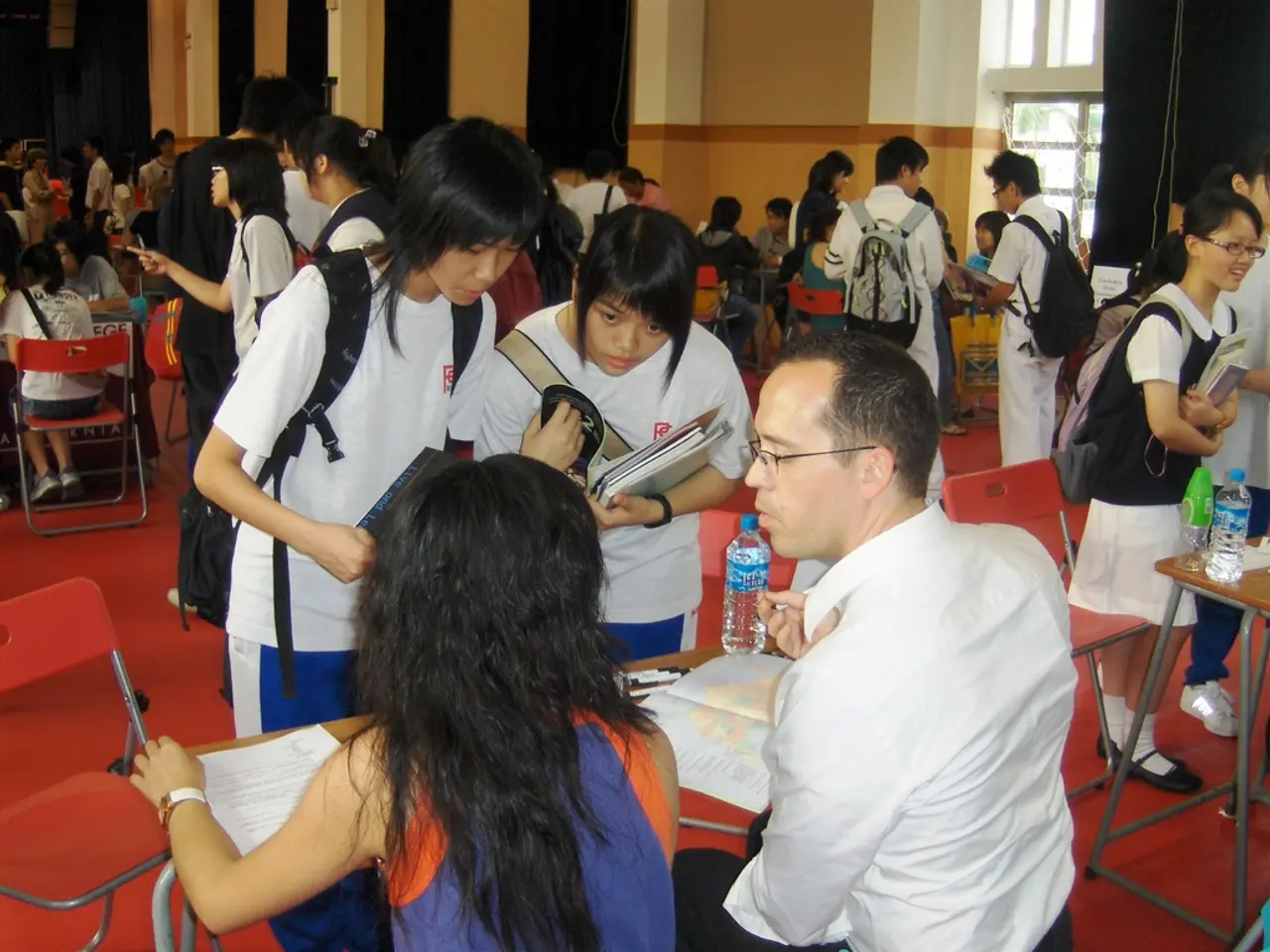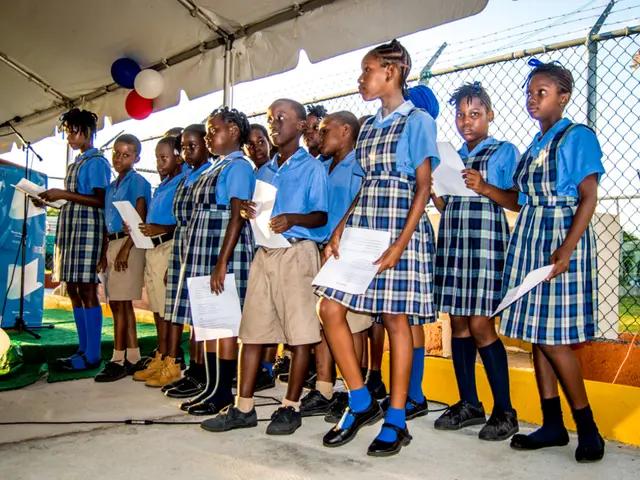Research Findings: Faster German Language Acquisition for Refugees in Traditional Classroom Settings
News Article: Welcome Classes and Language Development Among Young Refugees
A recent study conducted by the Martin Luther University Halle-Wittenberg (MLU) has shed light on the impact of welcome classes and immediate integration on the language development of young refugees.
The study found that quick integration into regular school classes is crucial for better language development among young refugees. However, it also revealed that so-called welcome classes, designed to prepare young refugees with limited German skills for regular classes, do not seem to compensate for initial differences in language level as expected.
Welcome classes, also known as newcomer programs, provide targeted language and cultural support to help refugee students build foundational skills. These programs often include social-emotional support and cultural orientation, which can reduce isolation and promote mental well-being, factors positively influencing language acquisition and academic engagement.
In contrast, immediate integration into regular school classes without such preparatory support can expose refugee students to immediate language challenges and social isolation, potentially hindering language development and academic progress.
The MLU study did not discuss the long-term effects of early integration on the language skills of young refugees or provide recommendations for improving language development in the context of school integration. It also did not provide information on the number of participants or the methodology used in the research.
Another key finding was that longer waiting times for school admission are associated with poorer German skills years later. In many federal states, school starts only after a refugee family is assigned to a municipality, leading to longer wait times for school-age refugee children.
Lack of contact with non-refugee peers is a reason why welcome classes do not seem to level second language skills among young refugees. The study did not discuss the impact of other factors, such as cultural differences, on language development among young refugees.
Despite these challenges, the study suggests that welcome classes generally enhance language development by providing a scaffolded learning environment tailored to refugee youth needs, helping them gain language skills and cultural understanding before full integration. The effectiveness of these programs depends on quality, resources, teacher preparedness, and ongoing support.
Additional details from the study indicate that welcome programs often include orientation for students and families, helping them navigate school culture and expectations, which supports language use and motivation. Cultural competency training for educators and peers, as emphasized by refugee voices, enhances the environment and facilitates language and social integration.
Investigations in the study showed that refugee primary school children lagged behind their non-immigrant peers by an average of two school years in reading comprehension. For students from immigrant families to follow lessons and achieve good grades, they need to master the language of the host country.
While the study did not provide specific recommendations for improving language development among young refugees in the context of school integration, it underscores the importance of targeted support and early integration for better language development among young refugees. Further research and practice are needed to determine the most effective strategies for language development in this context.
Read also:
- Kamala Harris announces her ongoing political plans-for the present time
- Genetic Rarity Explored: Insights into Science, Struggles, and Misconceptions Surrounding Albinism
- Smoking Secondhand: Impact, Frequently Asked Questions, and Additional Information
- Strategies for Mitigating Negative Feelings in Customer Interaction with Your Goods or Services








